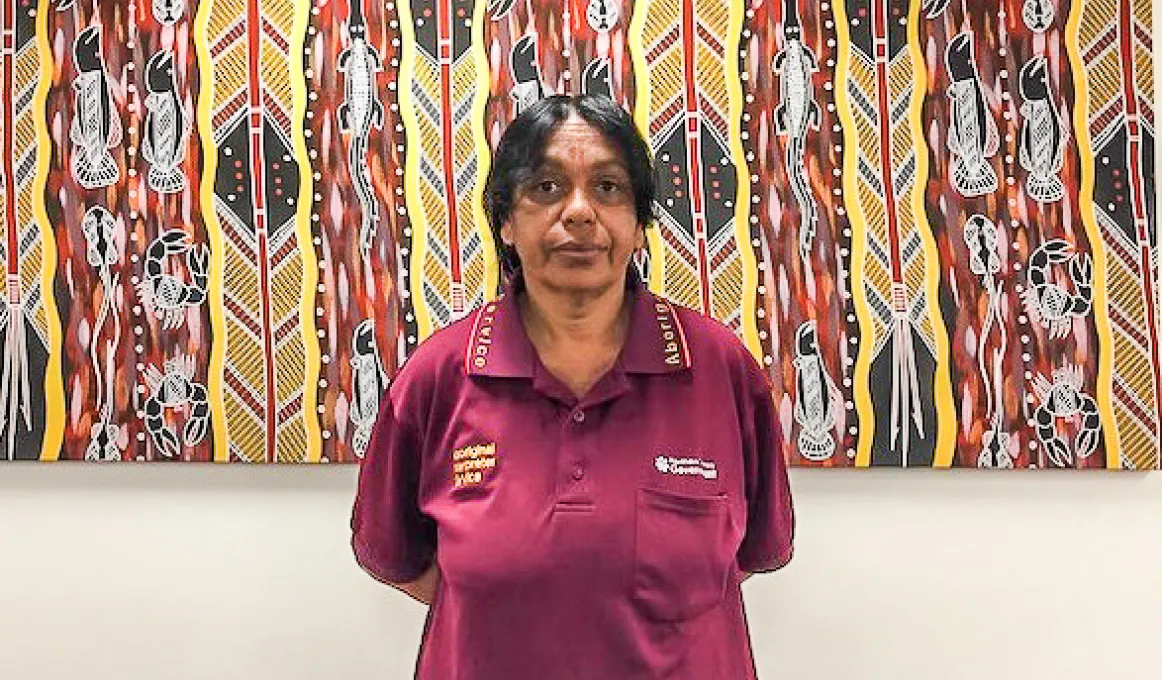Breaking down language barriers

Language interpreters are crucial in the lives of many Aboriginal and Torres Strait Islander Australians.
Language interpreters are crucial in the lives of many Aboriginal and Torres Strait Islander Australians.
Sylvia Tkac is a Ngalmi woman living and working in Darwin, and an interpreter for Anindilyakwa – the community language of the Groote Eylandt Archipelago community.
‘I became an interpreter with the Aboriginal Interpreter Service (AIS) through working in the language centre for six years on Groote Eylandt,’ Sylvia said.
‘My language teacher who I worked with at the time on Groote Eylandt saw a great need for more interpreters who speak Anindilyakwa language, so she encouraged me to become an interpreter with the AIS.’
The 2016 Census estimates that there are 60,000 Aboriginal and Torres Strait Islander people who speak an Indigenous language at home. This is about 10 per cent of Australia’s First Nations people.
Indigenous Australians who do not speak English as a first language may require an interpreter in order to have equal access to government services.
Some matters, such as healthcare, may be highly sensitive and complex. Others can be and often require special training on the part of the interpreter.
‘When I had to interpret in the legal system, I had to complete legal training so I could understand the legal terms in English language being spoken,’ Sylvia said.
‘It’s very high level and is not spoken in every day conversation so I was very proud of myself when I successfully interpreted in the legal system.’
‘People are grateful that they hear the message in their own language because most people think in the language they speak,’ Sylvia said.
‘So this stops miscommunication and provides the client a better understanding of what is happening and what has been said.’
Sylvia and her fellow interpreters are providing an essential service which needs continual support and new interpreters. Sylvia has advice for those who are thinking about becoming an interpreter.
‘You could be a potential interpreter because you speak English and your own traditional language, and you understand both worlds - your own culture and other cultures.’
Find out more
If you require an interpreter, there are a few interpreting services that offer professional interpreting and translation services:
-
The Northern Territory Aboriginal Interpreter Service (NT AIS), which is also currently delivering a cross-border service into the South Australian Anangu Pitjantjatjara Yankunytjatjara Lands and the Western Australian Ngaanyatjarra Lands;
-
Aboriginal Interpreting Western Australia (AIWA); and
-
2M Language Services in Queensland.
-
Interpreting and Translating Centre (ITC) or ABC International Translating and Interpreting Services in South Australia,
The National Accreditation Authority for Translators and Interpreters (NAATI) also provides a directory of independent certified Indigenous interpreters across Australia.
Under access and equity principles, all agencies and all levels of government are responsible for ensuring that people who are unable to communicate in English have equal access to interpreting services.
In 2018-19, the Commonwealth allocated $5.765 million to improve access to Indigenous language interpreting services and to ensure the ongoing supply of a well-trained and accredited workforce of Indigenous interpreters in the Northern Territory, South Australia, Western Australia and Queensland.